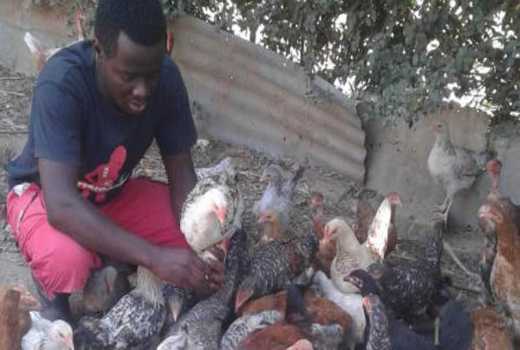×
The Standard e-Paper
Join Thousands Daily

It is feeding time at Elisha Wekoya’s poultry farm when Smart Harvest visits. Excited hens make cluck sounds as they fight for the rich chicken meal Wekoya is methodically throwing at them.
“If you notice, the birds are making a lot of noise because they are about to lay eggs,” Wekoya says of his indigenous breed, commonly referred to as Kienyeji.